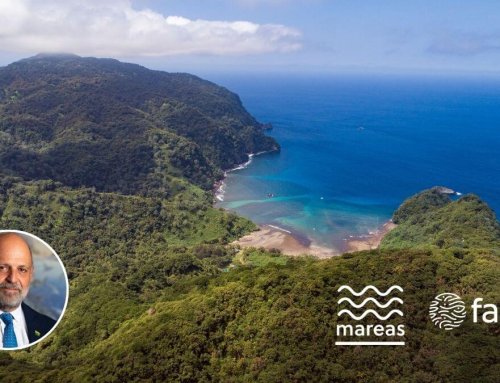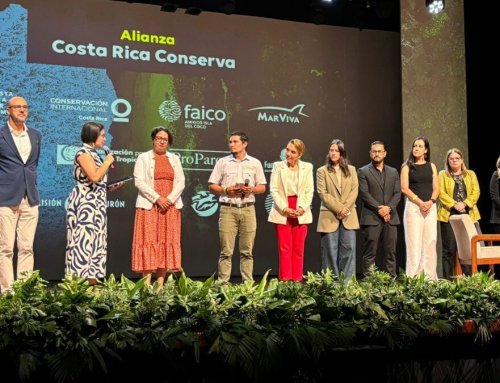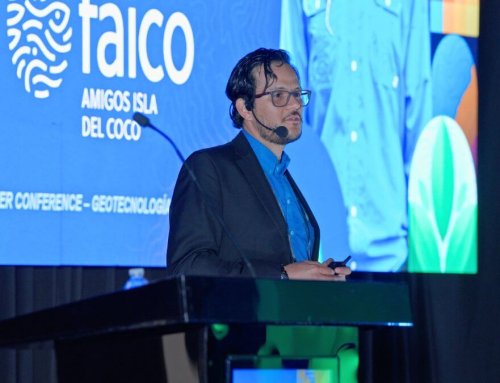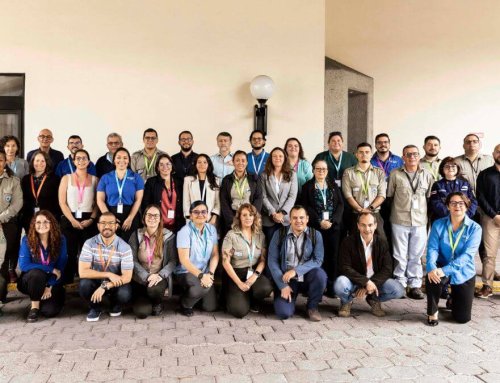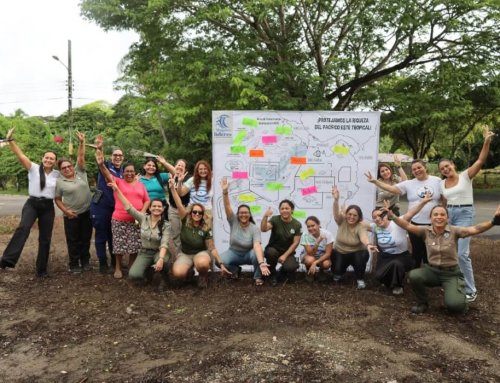Towards gender equality in marine conservation: The efforts of the Cocos Marine Conservation Area
Tides Column
By: Gina Cuza Jones
Regional Director of the Cocos Marine Conservation Area
The Cocos Marine Conservation Area (ACMC) has the fundamental responsibility to protect, with commitment and dedication, one of the most emblematic sites in Costa Rica and the world: Cocos Island National Park. This natural jewel is home to exceptional marine biodiversity and has been recognized as a Natural World Heritage Site, which calls us to strengthen our efforts to preserve its wealth and maintain its natural condition.
In this context, one of the most valuable assets of the ACMC is its human resources. Although historically it has been made up mostly of men, it also has women who have demonstrated leadership, commitment, and outstanding technical capabilities in marine management, often facing additional challenges related to gender inequality.
For years, women’s contributions to marine conservation have been invisible, and traditionally gendered roles have contributed to perpetuating labour gaps. Globally, only 30% of marine science and conservation researchers are women (UNESCO, 2020), and only 6% of management positions in marine conservation organizations are held by women (IUCN, 2020). This underrepresentation is also reflected in decision-making spaces at the global level, where only 1.2% of ministries in charge of environment or natural resources are led by women (UNEP, 2021). In addition, less than 20% of marine protected areas have women in managerial or technical roles (IUCN, 2019), which limits the diversity of perspectives in the management of these territories.
Despite these structural constraints, women are actively involved in key initiatives.
In Costa Rica, for example, their participation exceeds 60% in participatory biological monitoring activities in some Marine Areas of Responsible Fishing (INCOPESCA & CoopeSoliDar R.L., 2020), thus making evident their commitment to the protection of marine ecosystems and their potential as agents of change.
At the ACMC, we recognize this reality and firmly assume the need to promote actions that strengthen women’s capacities, especially in historically masculinized spaces, challenging stereotypes and fostering a more equitable and inclusive institutional culture.
We are committed to reducing gender gaps and empowering female leadership in marine conservation. For this reason, we promote working conditions that favour the full participation of women, and we promote joint and equal work between men and women. In this regard, the ACMC is actively working to obtain the National Gender Equality Seal, under Level 2 of the INTE G38-2:2021 Standard, with a focus on the promotion of affirmative actions for gender equality in the workplace. These actions seek to eradicate specific inequalities and allow both women and men to fully develop their functions.
In addition, the institution has set ambitious goals aimed at making visible the leading role of women in conservation, providing them with real opportunities to assume leadership and decision-making positions. Hence, we actively participate in the construction of the Institutional Policy for Gender Equality in the biodiversity sector of MINAE/SINAC. This policy will be a milestone in the promotion of gender equality and inclusion, recognizing and strengthening the valuable contribution of women in the conservation of biodiversity, especially in our marine protected areas.


